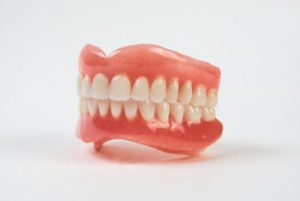Dentures are a life-changing solution for anyone dealing with significant tooth loss or missing teeth. Whether you’re looking for full dentures to replace all your teeth or partial dentures to address specific gaps, knowing the costs involved is crucial. In this guide, we’ll break down everything about dentures, from their types and costs to maintenance tips and how private health insurance can help. Let’s dive into the details and answer the all-important question: how much do dentures cost?
Understanding Dentures: What Are They and Why You Might Need Them
Dentures are false teeth intended to replace missing teeth and regain both functionality and aesthetics to your smile. They are custom-made to fit your mouth cavity and can be either removable or fixed. Dentures are often recommended for those who have experienced significant tooth loss due to gum disease, tooth decay, or injury.
Types of Dentures: Which One Is Right for You?
The cost of dentures largely depends on the type you choose. Here are the common options:
Full Dentures

Partial Dentures
If you have some natural teeth remaining, partial dentures are an ideal option. They effectively fill the spaces left by missing teeth and are usually held in place with metal clasps or precision attachments.
Implant-Supported Dentures
Also referred to as fixed dentures, these are secured using titanium implants that are surgically embedded into the jawbone. They provide enhanced stability and durability, closely replicating the function of natural teeth.
Acrylic and Chrome-Plated Dentures
Acrylic dentures are lightweight and affordable, whereas chrome-plated dentures are stronger and more durable. Hybrid partial dentures combine the benefits of both.
How Much Do Dentures Cost in Australia?
The cost of dentures can differ significantly depending on factors such as the type of dentures, the materials used, and the complexity of the required dental procedures.
Typical Denture Costs
- Partial Dentures: Start at 700 AUD.
- Full Dentures: Start at 1,500 AUD per arch.
- Implant-Supported Dentures: Can start at 4,000 AUD per arch.
Other Costs to Consider
- Tooth Extractions: If teeth need to be extracted before fitting dentures, expect additional costs starting at 150 AUD per tooth.
- Denture Adjustments or Relines: Ongoing maintenance costs can start at 300 AUD.
- Denture Repairs: Repair costs vary but typically start from 100 AUD.
What Affects the Cost of Dentures?
Several factors impact the overall cost of dentures, including:
- Materials: Acrylic dentures are more affordable, while chrome-plated and titanium options are pricier.
- Type of Dentures: Implant-supported dentures cost significantly more than removable dentures.
- Dental Clinic: Prices vary based on the clinic and the expertise of the dental professional.
- Health Insurance Coverage: Some private health insurance policies cover part of the cost of dentures.
Financing Options for Dentures: Accessible and Flexible Solutions
Dentures are an essential investment in restoring your smile and improving oral health, but their cost can sometimes feel overwhelming. Fortunately, there are several financing options available to make dentures more affordable, including flexible payment plans and programs like TLC and the National Dental Plan. Here’s how you can manage the cost of getting dentures.
Health Fund Coverage for Dentures
Private health insurance can also help cover some of the cost of dentures under the major dental category. To maximise your benefits, consider the following:
- Check your policy’s annual limit for major dental procedures.
- Understand any out-of-pocket expenses or gap payments.
- Confirm whether pre-approval is needed for your treatment.
Health fund rebates can significantly reduce the financial burden of dentures, so it’s worth exploring your coverage in detail.
TLC (Total Lifestyle Credit) Payment Plans
TLC offers a simple and flexible way to finance dentures and other dental treatments. With tailored payment plans, patients can access high-quality dentures without the strain of paying upfront. Key features of TLC include:
- Financing options for both minor and major dental work.
- Competitive interest rates.
- Fast and easy application processes with quick approvals.
- Manageable instalments spread over a convenient timeframe.
TLC is an excellent option for patients seeking flexibility and affordability, making it easier to prioritise oral health without financial stress.
National Dental Plan (NDP)
The National Dental Plan (NDP) is another fantastic option to help spread the cost of your dentures. With a user-friendly process, NDP allows patients to:
- Pay for treatment in interest-free, manageable instalments.
- Choose repayment terms of up to 24 months.
- Benefit from immediate approval without complex application requirements.
This plan provides a stress-free way to maintain your oral health while keeping costs manageable.
Why Financing Options Matter
With flexible options like TLC, the National Dental Plan, and private health insurance rebates, managing the cost of dentures has never been more accessible. These solutions allow patients to restore their smile and address dental health needs without the stress of upfront payments.
If you’re considering dentures, speak with your dentist about the financing options that are available. Together, you can find the best plan to suit your needs and budget, ensuring your journey to a healthier smile is as stress-free as possible.
Signs You Might Need Dentures
Dentures aren’t just for seniors—people of all ages might require them due to oral health issues. Common signs include:
- Significant Tooth Loss: Losing several teeth affects chewing and speaking and can alter your facial structure.
- Gum Disease: Advanced periodontal disease often leads to tooth loss and may require dentures.
- Difficulty Chewing: Struggling with certain foods can indicate dental issues requiring tooth replacement.
- Loose or Worn Teeth: Teeth weakened by decay or injury might not be salvageable.
Why Consult Early?
Acting quickly can prevent further complications, including jawbone loss and additional dental procedures. Early intervention may also offer alternative treatments like dental implants.
Dentures vs. Dental Implants: Which Should You Choose?
Dentures and dental implants are both effective solutions for replacing missing teeth, but they cater to different needs and lifestyles.
- Dentures: These are removable prosthetics designed to replace multiple teeth or even a full set. They are more budget-friendly and can often be fitted in a shorter timeframe. However, they may require ongoing maintenance and periodic replacement.
- Dental Implants: Implants are surgically fixed titanium posts that serve as anchors for artificial teeth. While the upfront cost is higher, they offer unmatched stability, durability, and a natural appearance. Implants prevent jawbone deterioration and function almost identically to natural teeth.
- Combination Options: Implant-supported dentures merge the benefits of both solutions, providing the stability of implants with the broader coverage of dentures. This is ideal for those who require a full arch replacement but prefer enhanced security over traditional dentures.
Choosing Between Dentures and Other Tooth Replacement Options
When deciding between dentures, dental implants, and bridges, it’s essential to weigh the pros and cons.
Dentures
- Pros: Affordable, replace multiple teeth, quick process, non-invasive.
- Cons: May feel less stable, require maintenance, and can affect speech initially.
Dental Implants
- Pros: Permanent, prevent jawbone loss, function, and feel like natural teeth.
- Cons: Higher cost, longer treatment time, and surgery required.
Dental Bridges
- Pros: Fixed solution for replacing a few missing teeth, quicker than implants.
- Cons: Requires adjacent teeth to be altered, less durable than implants.
Which to Choose?
- Dentures may be ideal for affordability and flexibility.
- For a long-lasting and natural feel, implants stand out.
- For minimal tooth loss and a quick fix, bridges are a good choice.
The Process of Getting Dentures: Step-By-Step Overview
Understanding the denture process can help ease any apprehensions:
- Consultation: During the first visit, the dentist will assess your oral health, discuss your options, and outline a treatment plan.
- Impressions: Moulds of your mouth are taken to ensure the dentures fit perfectly. This step may include adjustments for uneven gum surfaces or dental abnormalities.
- Fabrication: The dentures are fabricated in a dental lab using materials like acrylic or chrome-plated frameworks.
- Fittings: Once the dentures are ready, a fitting appointment ensures they are comfortable and functional. Adjustments may be necessary.
- Final Adjustments and Instructions: The dentist will provide care instructions and schedule follow-ups for any adjustments.
Tips for a Smooth Transition
- Start with softer foods and gradually introduce firmer options.
- Use denture adhesive if needed for added security.
- Practise speaking by reading aloud to adapt to the new feel.
Why Invest in Quality Dentures?
Choosing the right dentures isn’t just about affordability. High-quality dentures offer several advantages:
- Improved oral health by preventing further complications from missing teeth.
- Restored ability to chew and speak clearly.
- A more natural-looking smile boosts your confidence.
Caring for Your Dentures: Tips for Longevity

- Use a non-abrasive denture cleaner to thoroughly clean your dentures daily.
- Remove dentures overnight to allow your gums to rest.
- Soak dentures in water or a denture solution for the recommended time by your dentist.
- Schedule regular visits to your dental professional for maintenance.
Challenges of Wearing Dentures
Adapting to dentures can take time. Common challenges include:
Uncomfortable Fit
New dentures may feel bulky or tight initially. Regular adjustments and wearing them as instructed will help.
Sore Spots
Irritation can occur if dentures rub against the gums. A dentist can reline the denture to resolve this.
Speech Difficulties
It’s normal to struggle with certain sounds initially. Practise speaking aloud to regain confidence.
Eating Challenges
Start with soft foods, cut items into smaller pieces, and chew slowly. Avoid sticky or hard foods.
Practical Tips for New Wearers
- Use a denture adhesive for extra stability.
- Clean dentures daily with a non-abrasive cleaner.
- Avoid sleeping with dentures to allow gums to rest.
Preventing the Need for Dentures
Taking care of your oral health can help you maintain natural teeth for longer. Here’s how:
Brush and Floss Regularly
Daily brushing and flossing prevent plaque buildup and protect against tooth decay and gum disease.
Maintain a Balanced Diet
Eating a diet rich in calcium and low in sugary foods strengthens teeth and supports oral health.
Regular Dental Check-Ups
Routine visits to your dentist can catch early signs of gum disease or tooth decay, preventing the need for extractions.
Address Dental Issues Early
Don’t ignore issues like loose teeth, gum irritation, or tooth pain. Early treatment can save teeth and avoid more invasive procedures.
Quit Harmful Habits
Smoking and excessive alcohol consumption can weaken teeth and gums, increasing the risk of tooth loss.
Use Protective Gear
Wearing a mouthguard during sports can prevent injuries that might lead to tooth loss.
Common Questions About Dentures
How Long Do Dentures Last?
Dentures typically endure 5–10 years with proper care, but they may need adjustments over time.
Can I Sleep with My Dentures In?
While you can sleep with dentures, it’s recommended to remove them overnight to allow your gums to rest.
What Should I Avoid Eating with Dentures?
Avoid sticky, hard, or overly crunchy foods that could damage or dislodge your dentures.
Do Dentures Affect Taste?
Some individuals might experience a slight change in taste initially, but this typically improves as they adjust over time.
How Do I Handle Loose Dentures?
Loose dentures can be adjusted or relined by your dentist to ensure a better fit.
Are Dentures Covered by Medicare?
Medicare typically does not cover dentures unless they are part of a medical necessity. Private health insurance may offer partial coverage.
Can Dentures Be Repaired Quickly?
Yes, many dental clinics offer same-day repairs for minor issues like cracks or breaks.
What Are Denture Relines?
A denture reline adjusts the fit of your dentures to accommodate changes in your gum and bone structure.
Can Dentures Improve My Facial Appearance?
Yes, dentures support your facial structure, preventing the “sunken” look caused by significant tooth loss.
Are Dentures Uncomfortable?
New dentures might feel uncomfortable at first, but they typically become more comfortable as you adjust. If discomfort persists, consult your dental professional.
What Happens If Dentures Break?
Broken dentures can often be repaired by a professional. Avoid trying to fix them yourself.
Do Dentures Require Maintenance?
Yes, dentures require regular cleaning and periodic adjustments to ensure they fit properly.
Final Thoughts: How Much Do Dentures Cost in Australia?

If you’re ready to transform your smile, schedule a consultation with Infinity Dental Care at (02) 9159 6237 to discuss your options. They’ll help you choose the right type of dentures and guide you through the process, from tooth extractions to fitting new dentures.
Note: Any surgical or invasive procedure carries risks. Before proceeding, you should seek a second opinion from an appropriately qualified health practitioner.
References:
- Mayo Clinic. (n.d.). Dental implant surgery. Retrieved from https://www.mayoclinic.org/tests-procedures/dental-implant-surgery/about/pac-20384622
- Colgate. (n.d.). Implant-supported dentures. Retrieved from https://www.colgate.com/en-us/oral-health/dentures/implant-supported-denture
- WebMD. (n.d.). Dentures. Retrieved from https://www.webmd.com/oral-health/dental-health-dentures
- Healthline. (n.d.). Dental bridge. Retrieved from https://www.healthline.com/health/dental-bridge
- Cleveland Clinic. (n.d.). Dental impressions. Retrieved from https://my.clevelandclinic.org/health/diagnostics/22671-dental-impressions

